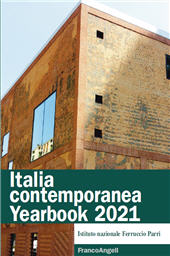Foster Parents" Plan : the "invention' of child sponsorship and the launch of its activities in Italy
93-115 p.
Foster Parents" Plan (FPP) was established in 1937 to support child victims of the Spanish Civil War. The initial idea came from an English war correspondent who wanted to create "personal ties" between refugee and orphaned children and their benefactors, thus creating one of the very first "child sponsorship" experiments. The "adoptive parents" financially supported the children and maintained contact with them throughout the letter exchange. With the outbreak of the Second World War, FPP extended its aid to children from other countries as well; by the end of the conflict, it was looking after thousands of young Europeans in situations of poverty and hardship. The organisation did not arrive in Italy until 1947, and its first activities were aimed at children who had been admitted to institutions or who had suffered serious physical impairments due to the war.
To successfully deal with the most urgent cases and have a direct connection to Italian society, FPP initially sought the support of institutions already active in the peninsula. However, starting from the early 1950s, it began to operate with greater autonomy thanks also to its proven organisational skills. [Publisher's Text].
Fait partie de
Italia contemporanea : 299, supplemento, 2021-
Articles du même numéro (disponibles individuellement)
-
Informations
Code DOI : 10.3280/icYearbook2021-oa005
ISSN: 2036-4555


